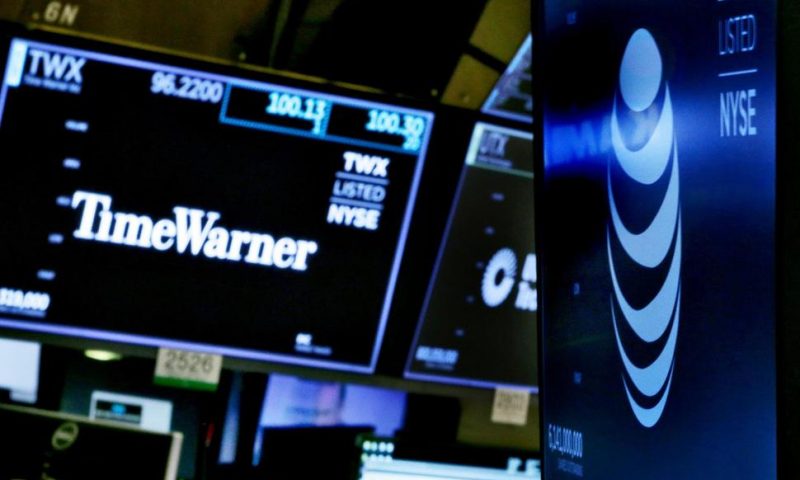AT&T says it will combine its massive WarnerMedia media assets, which includes HBO and CNN, with Discovery Inc. to create a new media heavyweight in a $43 billion deal.
NEW YORK — AT&T said Monday it will combine its massive WarnerMedia media assets, which includes HBO and CNN, with Discovery Inc. to create a new media heavyweight in a $43 billion deal.
The deal, which isn’t slated to close until next year, will create new publicly traded company that will enter a streaming arena that has been flooded in the past two years with new players including those owned by AT&T and Discovery, which operate HBO Max and Discovery+, respectively. Bigger and more established services, such as Netflix, Disney, and Amazon, remain the ones to beat. Netflix has more than 200 million subscribers globally, and Disney has more than 100 million.
It is a major directional shift for AT&T, which squared off with the Justice Department less than three years ago in an antitrust fight when it wanted to acquire Time Warner Inc. for more than $80 billion. It also marks the second time this year AT&T is divesting a business not directly related to its core broadband and wireless business. In February, the company spun off DirecTV for a fraction of the $48.5 billion it paid for the satellite TV service in 2015.
The deal still needs approval from Discovery shareholders and regulators before it can be finalized. AT&T stockholders don’t need to vote on the transaction.
Here’s a look at how the combination is likely to affect viewers, investors, employees and competitors.
VIEWERS
Nothing is likely to change for HBO Max and Discovery+ subscribers for now. AT&T executives said on a call with investors that their plans for HBO Max remain in place. That includes a rumored $10-a-month ad-supported version of the service, expected to be announced this week, and a June rollout in Latin America and the Caribbean.
Going forward, the services could be combined in a number of ways. They could become part of a bundle, as Disney has done with its separate services Disney+, Hulu and ESPN+. They could remain separate, or combined into one mega service. Geography will be a factor as well. Discovery CEO David Zaslav said in a call with investors that the company will figure out what to do in each market “and we’ll probably experiment in a lot of markets.”
Jeff Wlodarczak, principal analyst at Pivotal Research Group, said he believes a combination of both services is a likely outcome, but it won’t happen for a couple of years.
“You do not want to potentially disenfranchise the standalone Discovery + customers, and to be fair, the average HBO Max customer and Discovery + subscriber today is probably quite different,” he said, noting Discovery+ focuses on reality programs and HBO Max has more scripted shows.
Pricing is also a big question mark. HBO Max costs $15 a month while Discovery+ is $5 a month, or $7 without ads.
INVESTORS
If the deal goes through, AT&T shareholders would own 71% of the new company, and shareholders of Discovery would own 29%.
AT&T, long known for a hefty dividend, said it plans to “reset” the dividend after the deal goes through. It will lower the dividend payout ratio, which is the percent of net income paid to shareholders in dividends, from about 60% to around 40%.
That means less of an immediate payout to shareholders, said Neil Begley, senior vice president at Moody’s Investors Service. But it will free up money for AT&T to invest in 5G and other broadband initiatives, which will lead to better performance in the long run.
“If you’re there for the income (from dividends) you’re probably not thrilled,” he said. “But over the longer term it’s better for shareholders.”
AT&T’s stock fell 2.7% on Monday.
EMPLOYEES
AT&T and Discovery said the combination will save $3 billion annually that can be plowed into investments in content and its streaming service. That likely means layoffs when the departments are combined and restructured.
“Unquestionably there’s going to be some layoffs,” said CFRA analyst Tuna Amobi.
Since being acquired by AT&T, WarnerMedia has already been through two rounds of layoffs, including a 5% to 7% cut in November, about 1,000 jobs.
On the other hand, after being run by a company with little entertainment experience, being under the helm of an established media company could be a welcome change for WarnerMedia employees, Moody’s analyst Begley said.
“They will feel more of the traditional media culture back again,” he said.
COMPETITORS
Netflix still dominates the streaming-service sector, being the most established player with more than 200 million subscribers globally. Amazon and Disney+ round out the top three.
The WarnerMedia and Discovery combination could make it a “Big 4,'” of general entertainment streamers, said Tim Hanlon, CEO of consulting firm The Vertere Group.
“The belief is this combination is a legitimate possibility for these two streaming services to rise up into the top ‘must-have’ tier,” he said.
That will probably lead to more consolidation among the smaller players remaining, including NBCUniversal’s Peacock, ViacomCBS’ Paramount+ and others. There are about 150 to 200 niche streaming services in the U.S. alone, Hanlon said.
“I don’t think we’re done seeing deals yet, there’s plenty more consolidation in the streaming space to come,” Hanlon said.

